Abstract
Retarded subjects were taught generative pluralization rules concurrently in both the receptive and productive modalities of language. Receptive training established correct pointing to either one or a pair of objects, in response to a spoken singular or plural label of the object(s); productive training established correct spoken labels of one or a pair of objects presented visually. However, these pluralization rules were established in each modality only for a specific class of plurals: those ending in -s for one modality, those ending in -es for the other modality. This training was successful in establishing generative, or rule-governed behaviors, such that untrained examples of singulars and plurals were usually responded to correctly. Nevertheless, despite this concurrent, generative behavior, probes revealed little generalization between modalities: three of four subjects did not generalize clearly from receptive training with one class of plurals to correct productive use of that class, nor did they generalize from productive training of the other class of plurals to correct receptive response to that class. The fourth subject, however, did show strong generalization of both these types. It was concluded that automatic generalization between receptive and productive language is not necessarily an inevitable result of language training in such subjects, and therefore may require explicit, if temporary, programming, such as by direct reinforcement.
Full text
PDF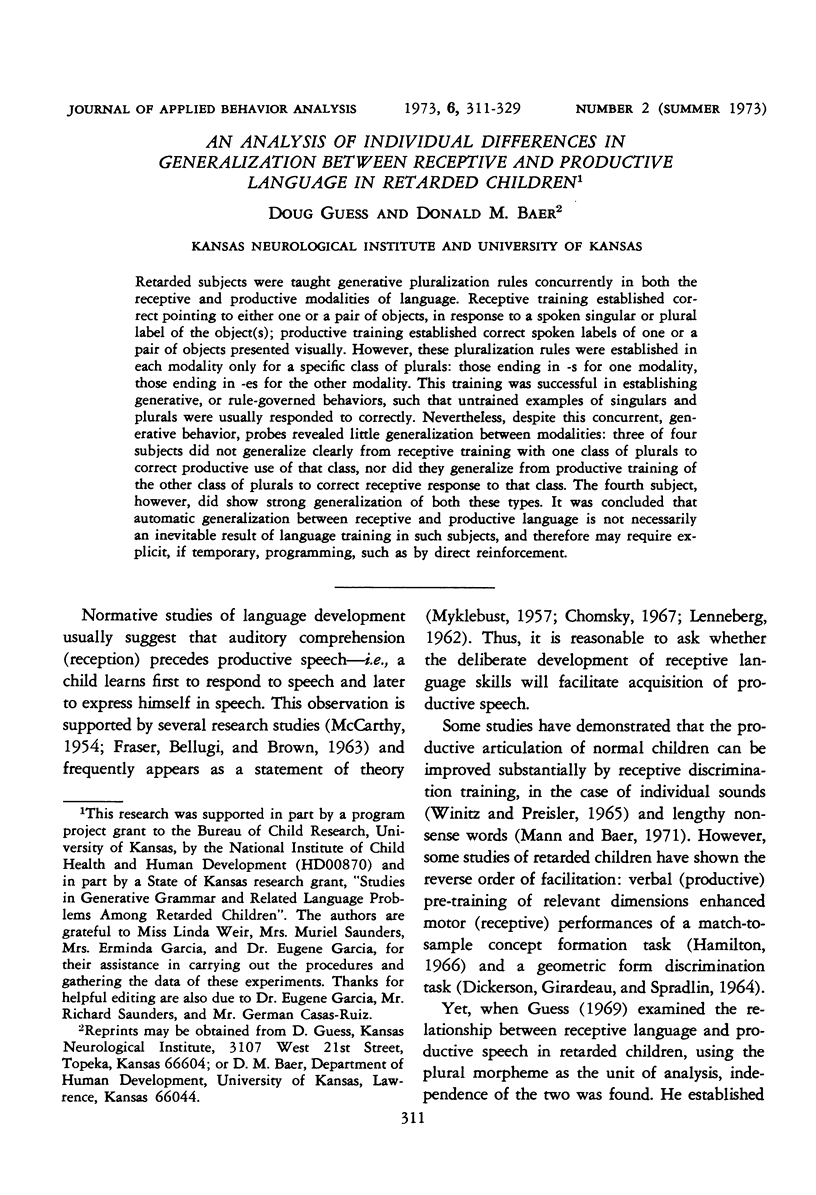
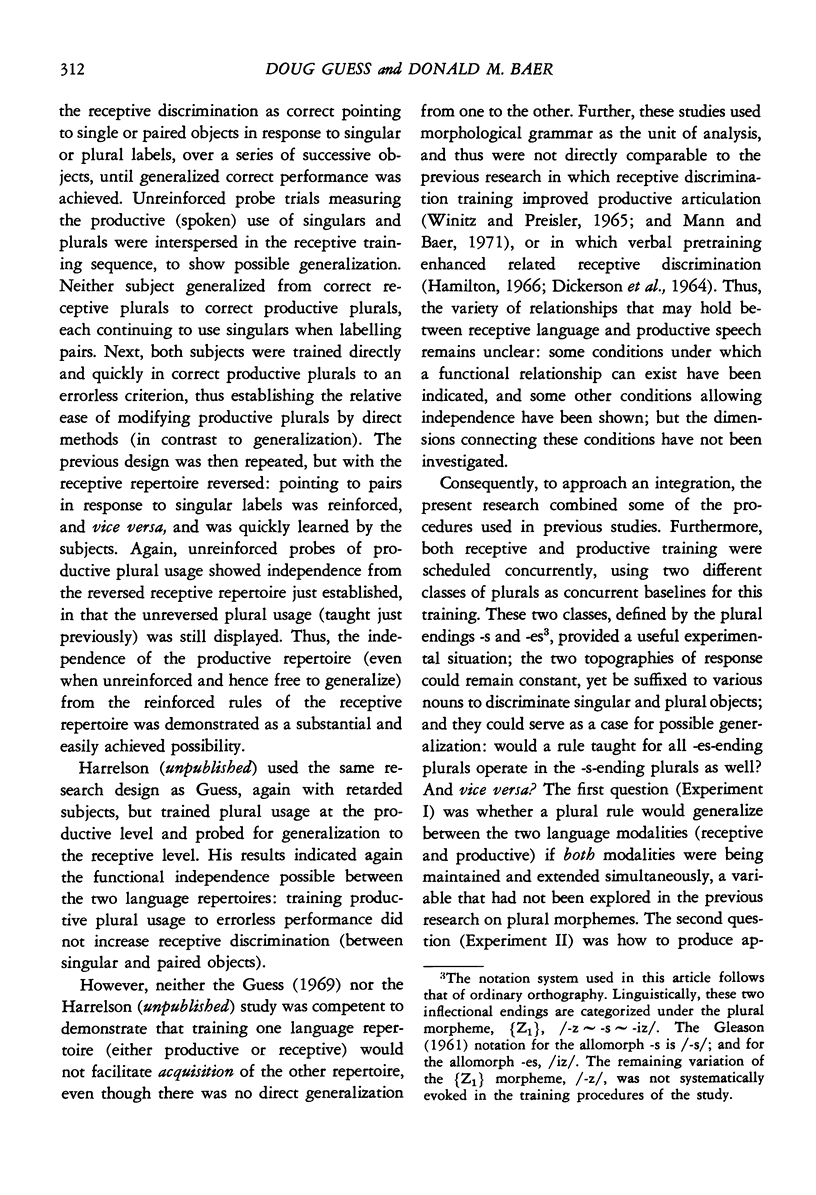
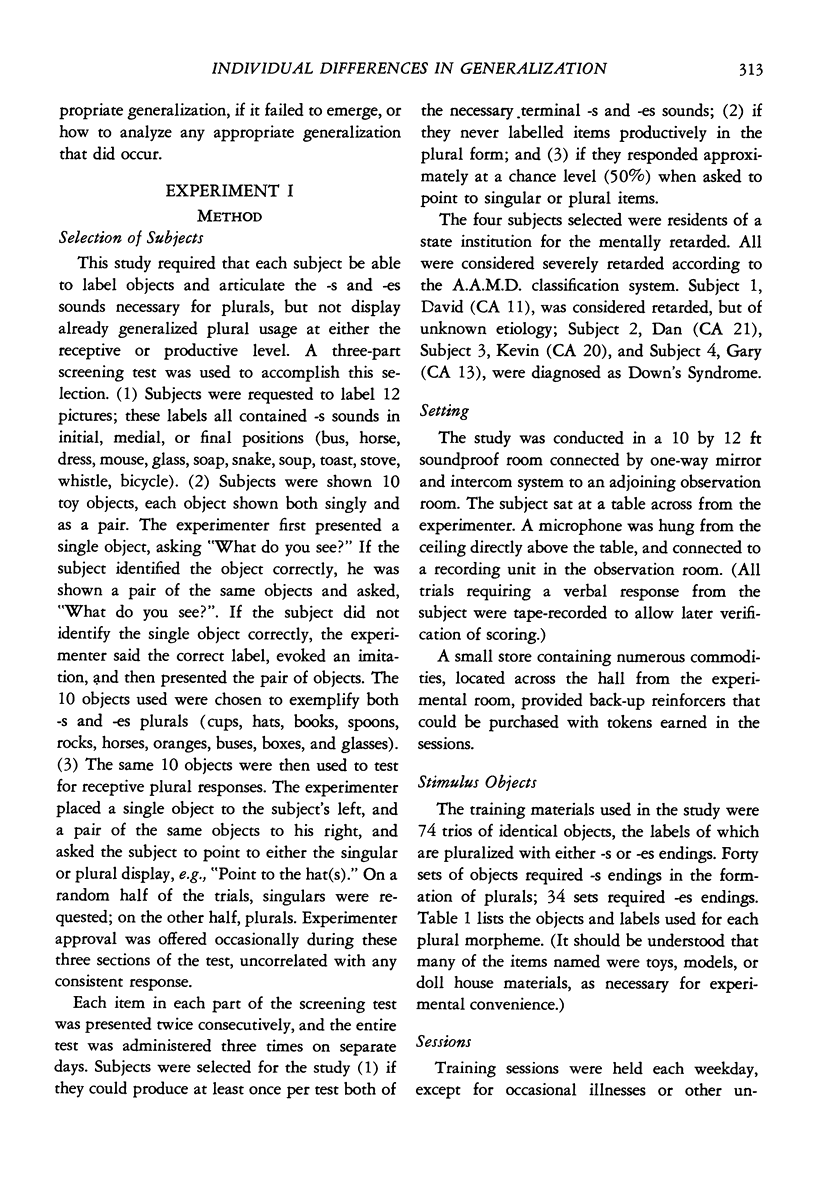
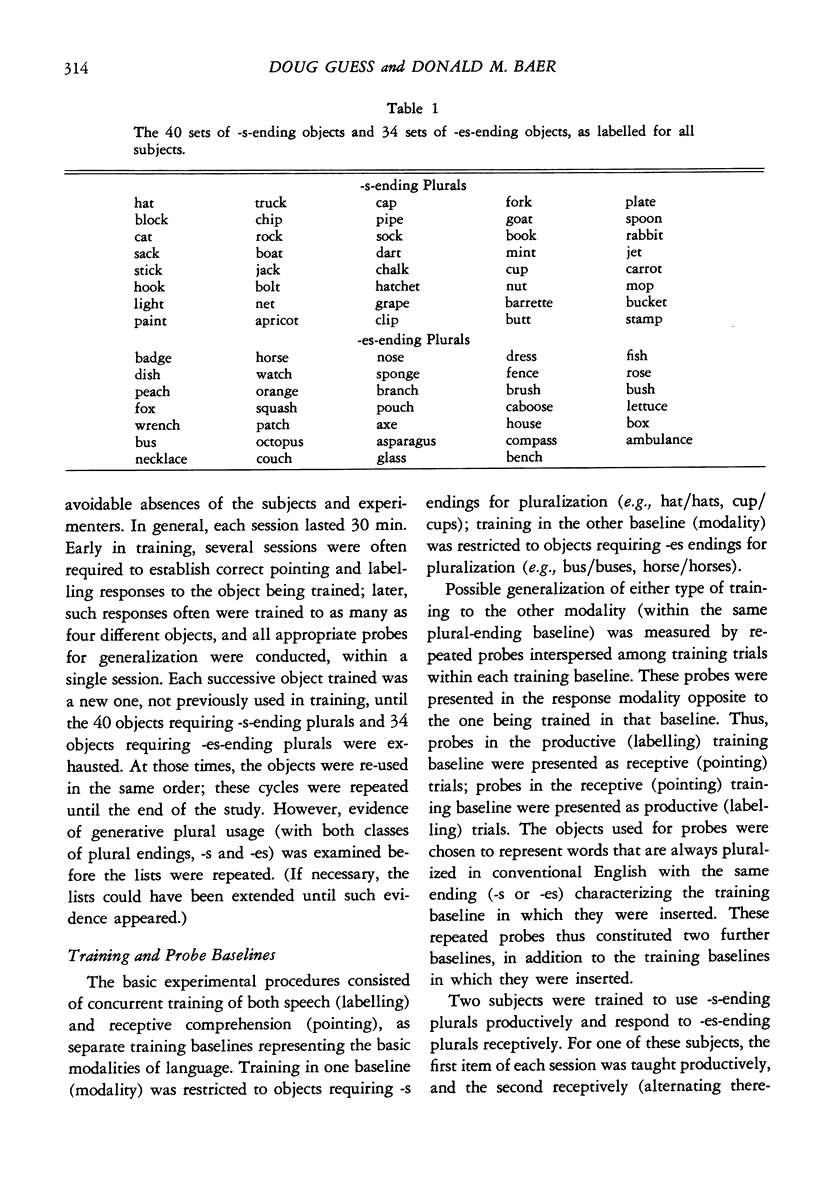
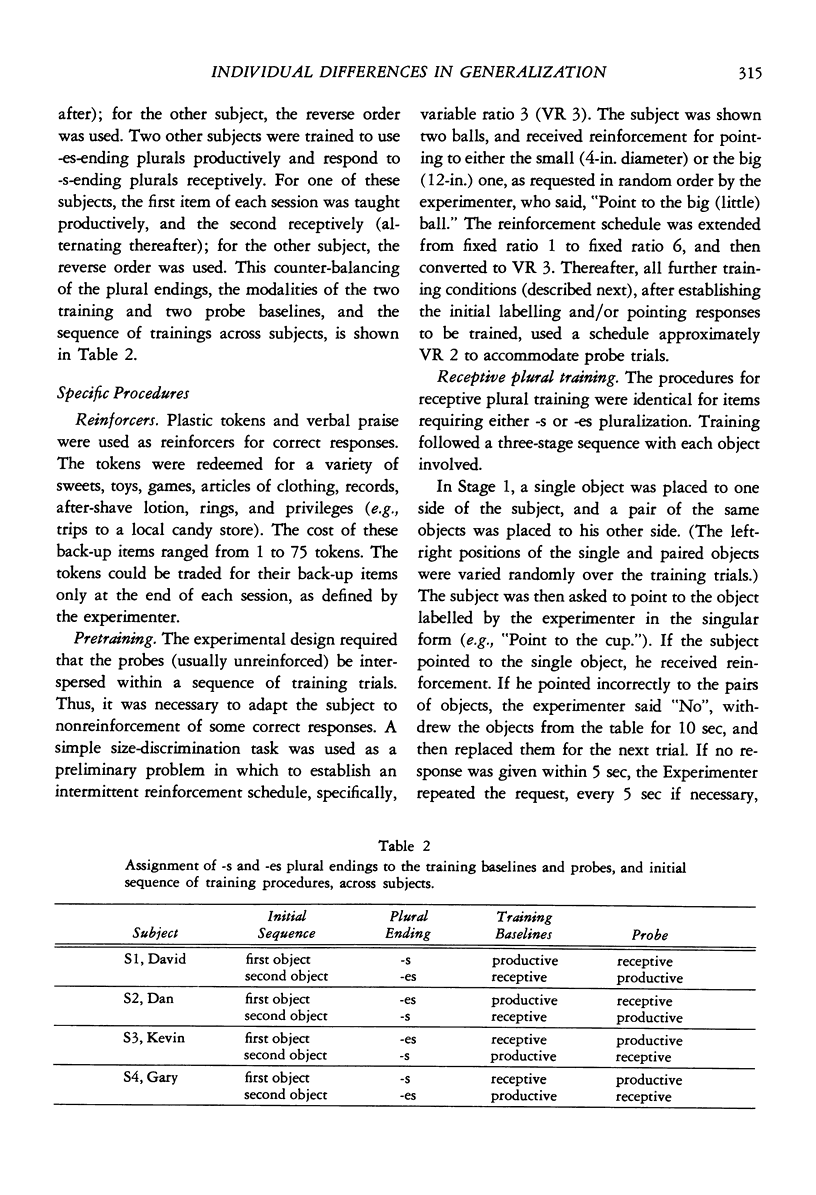
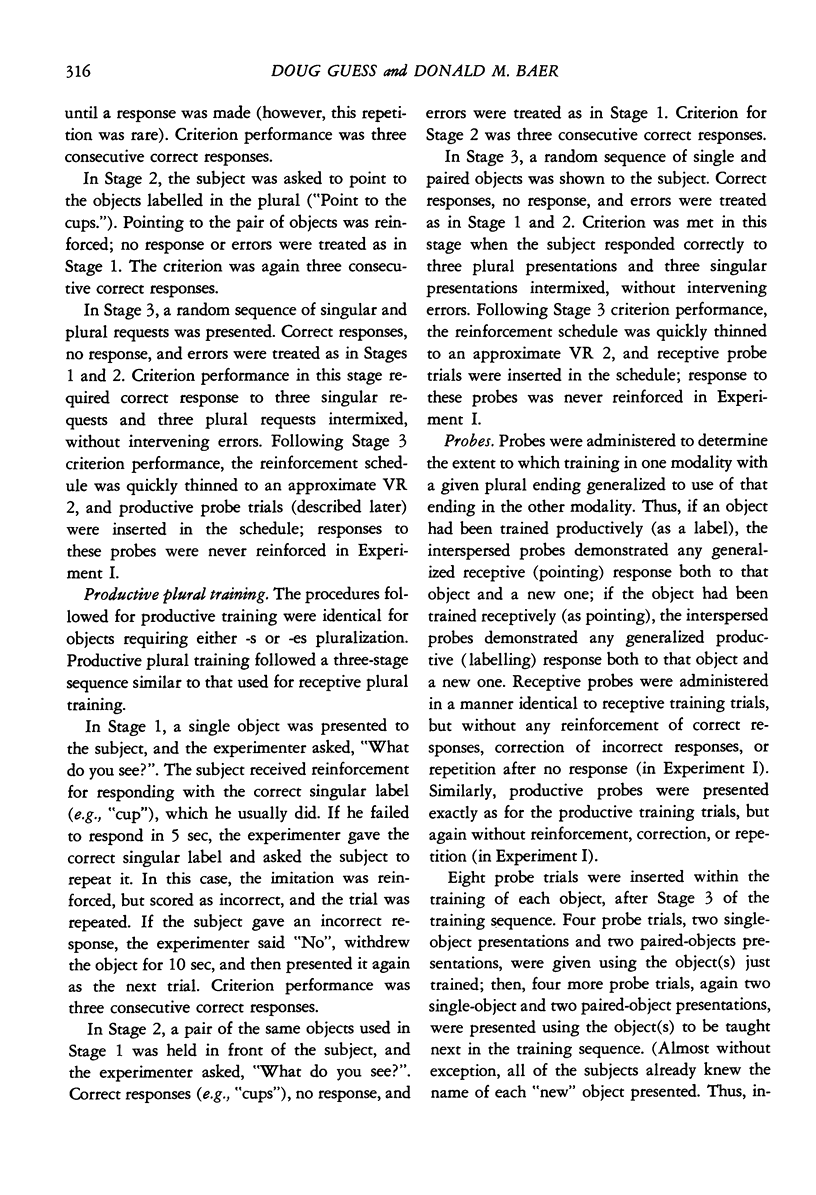
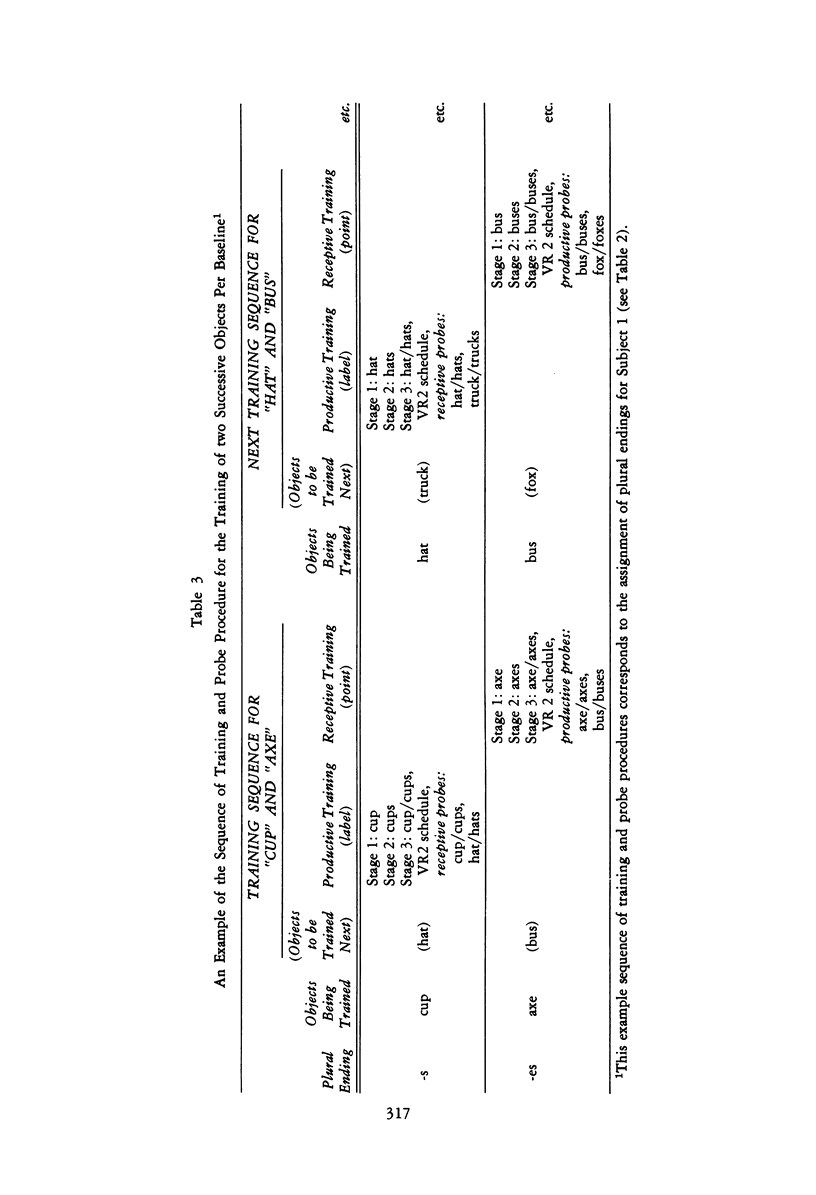
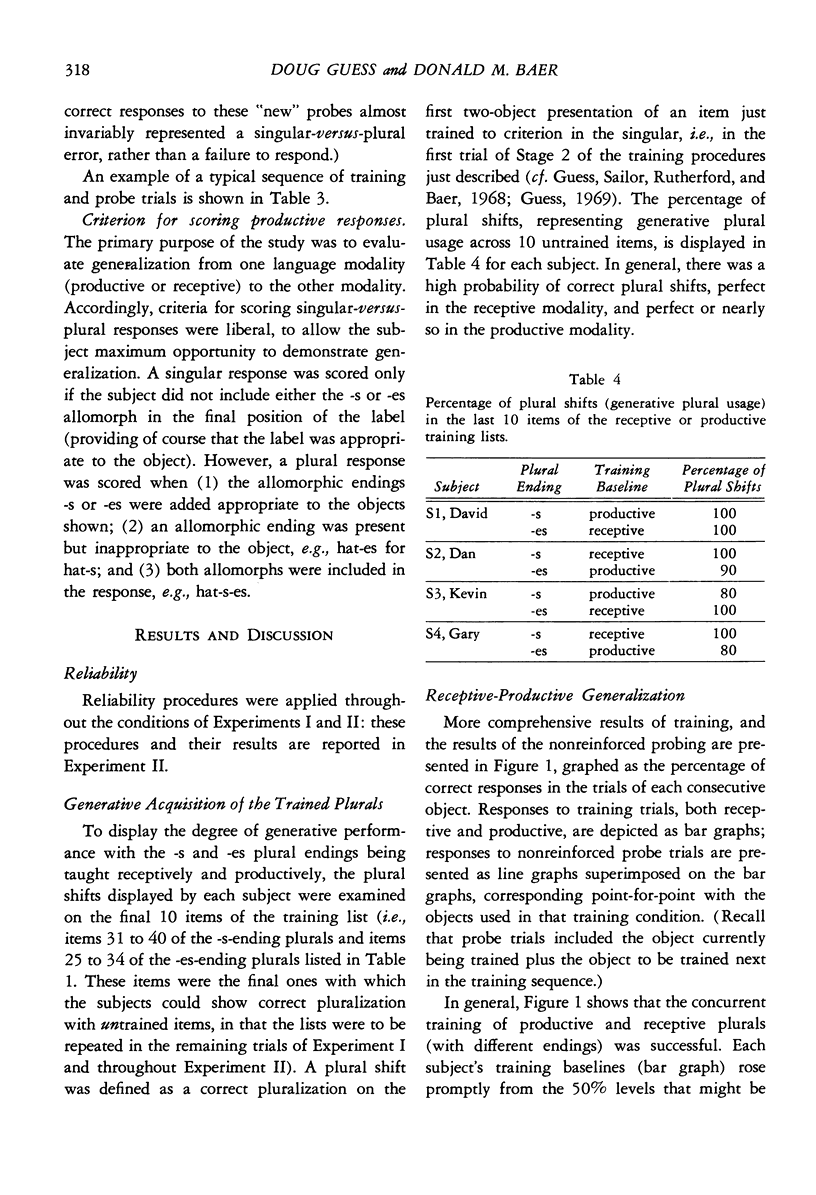
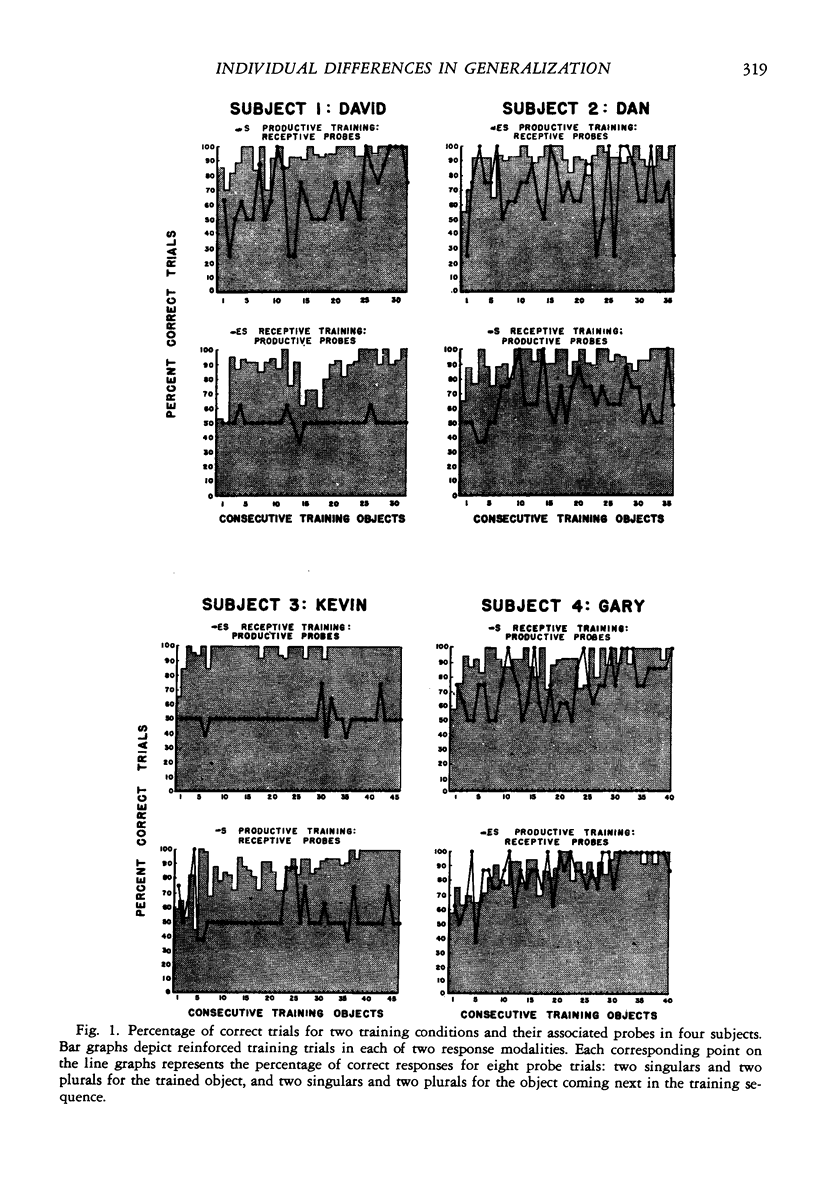
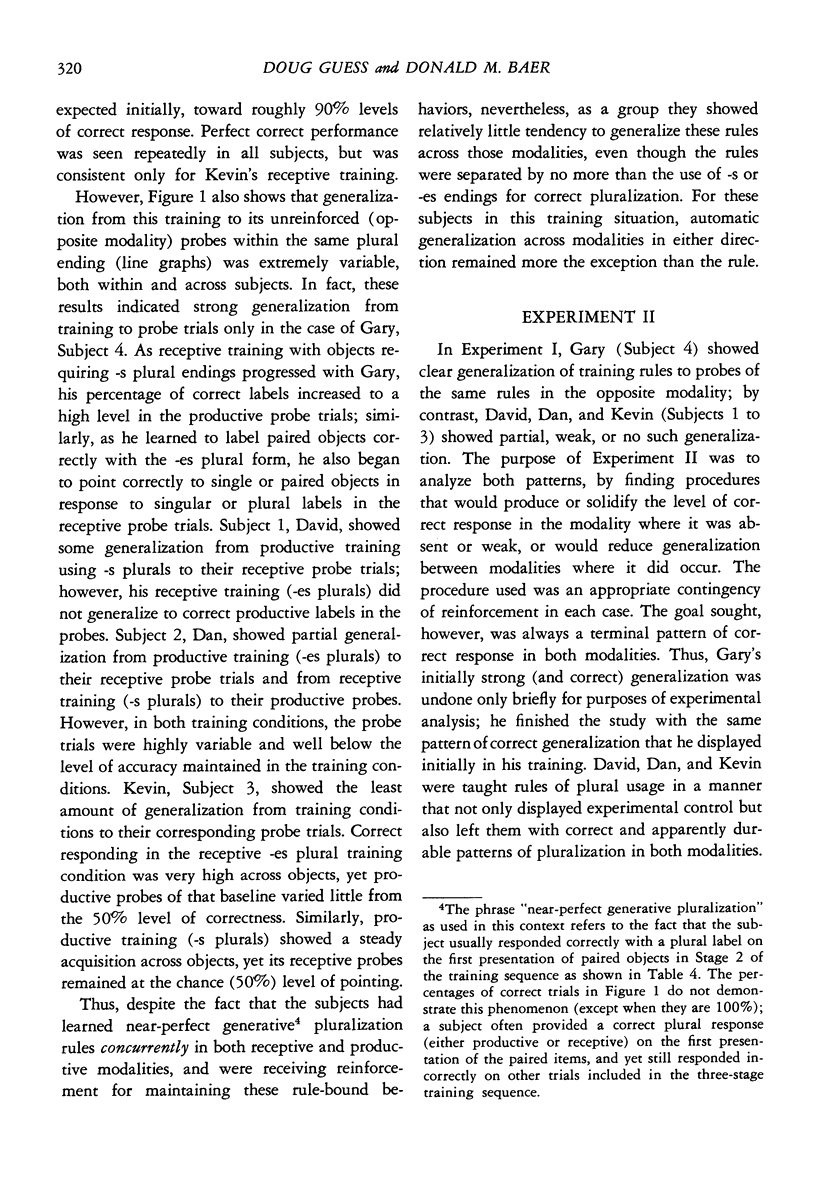
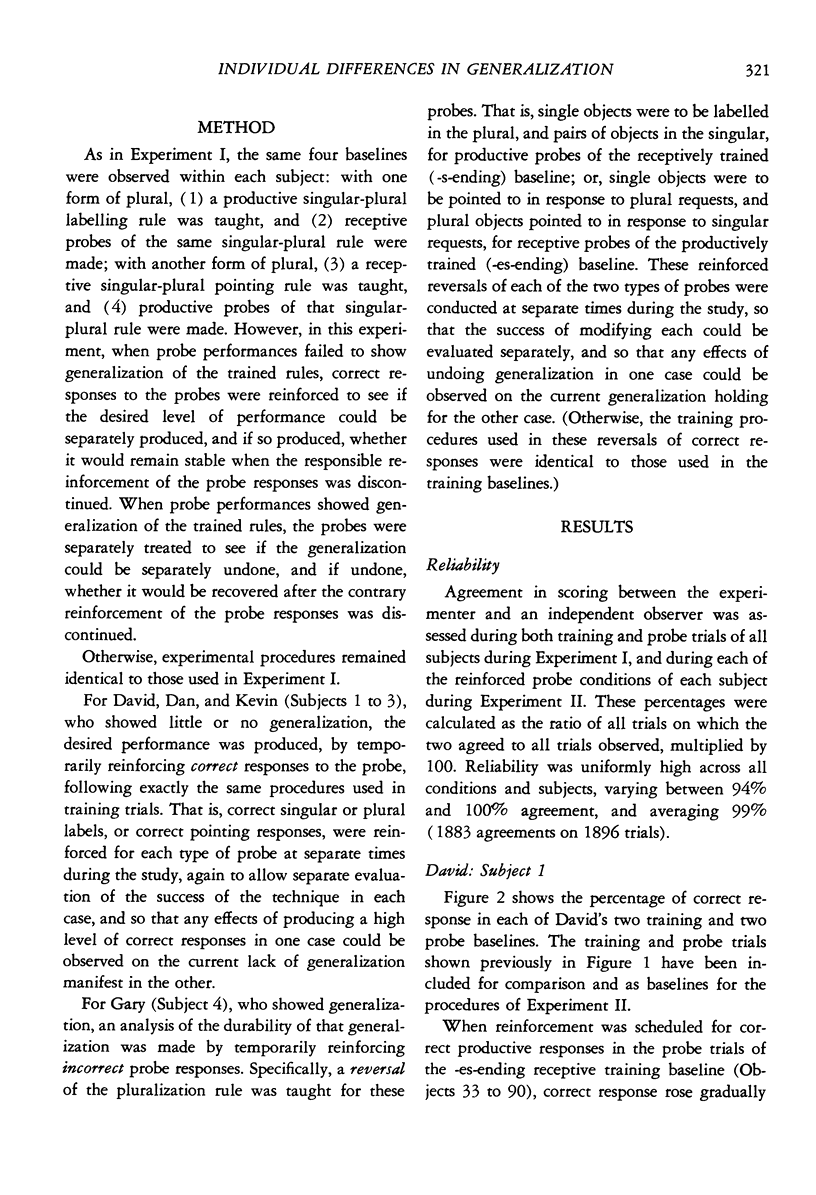
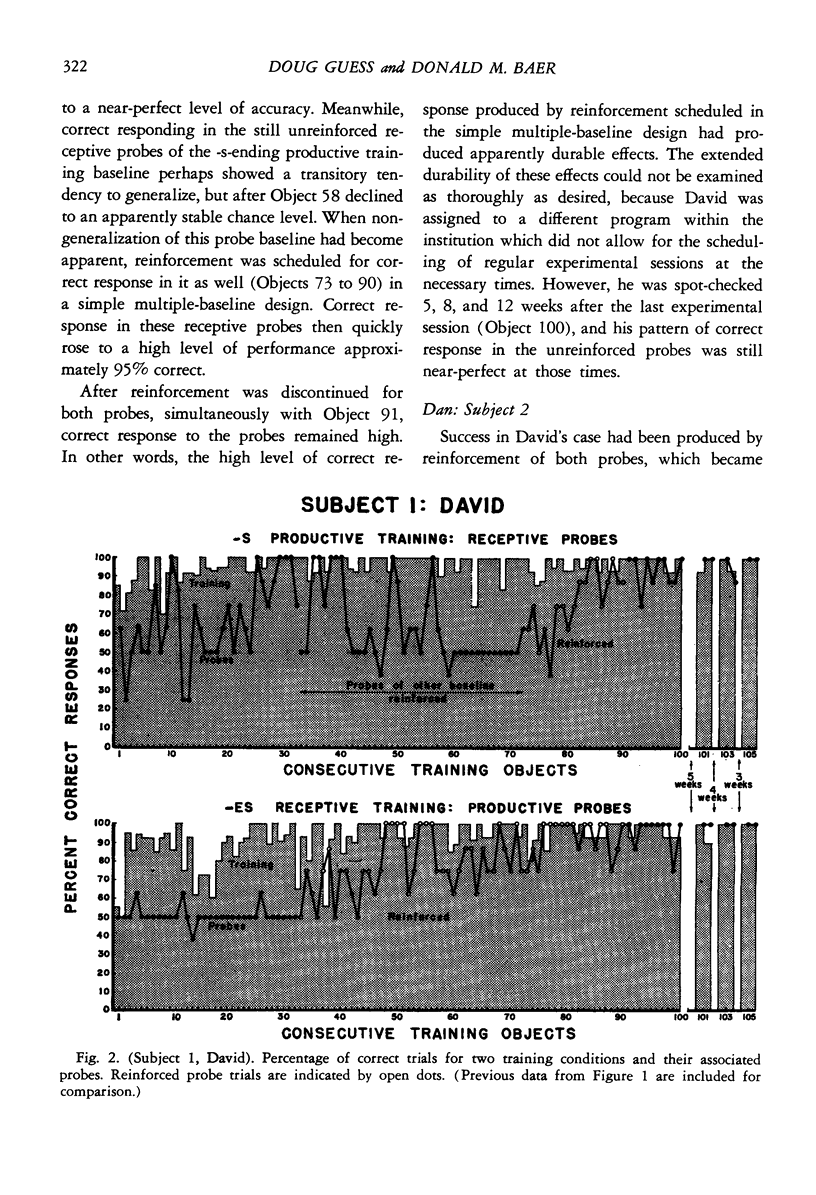
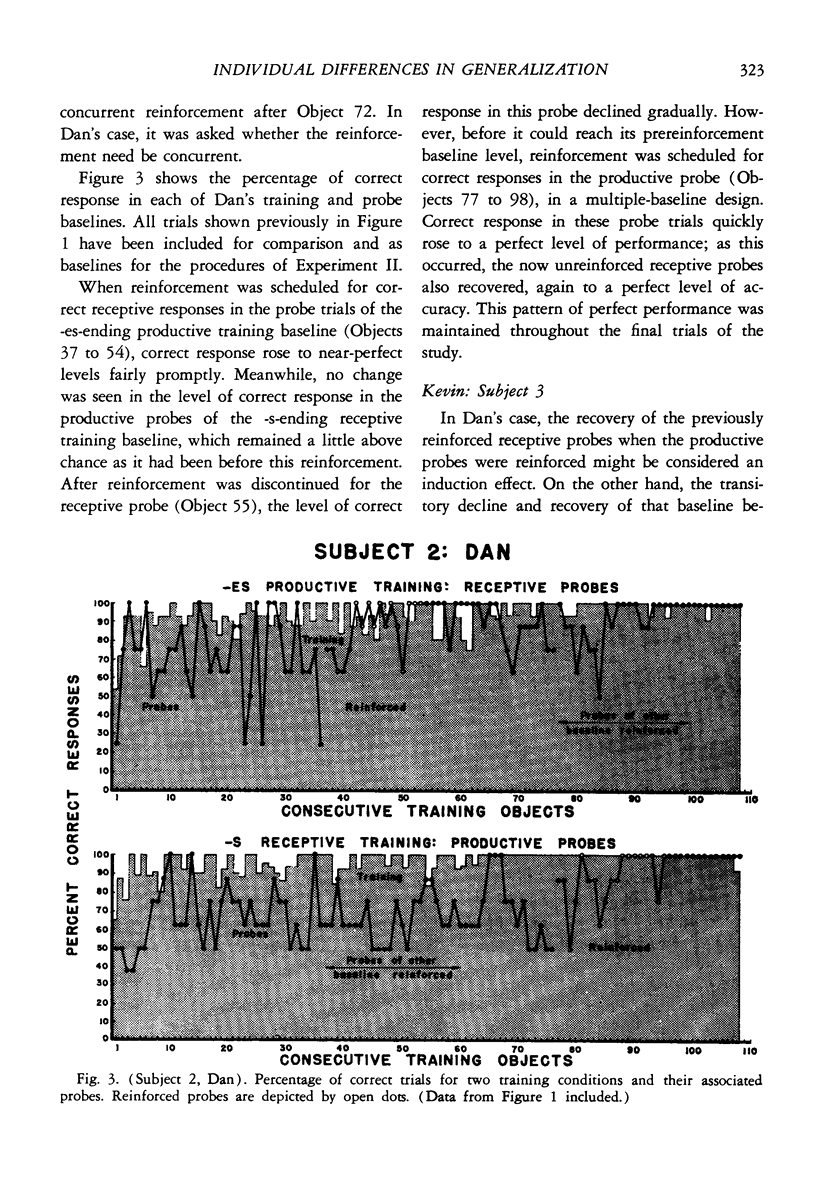
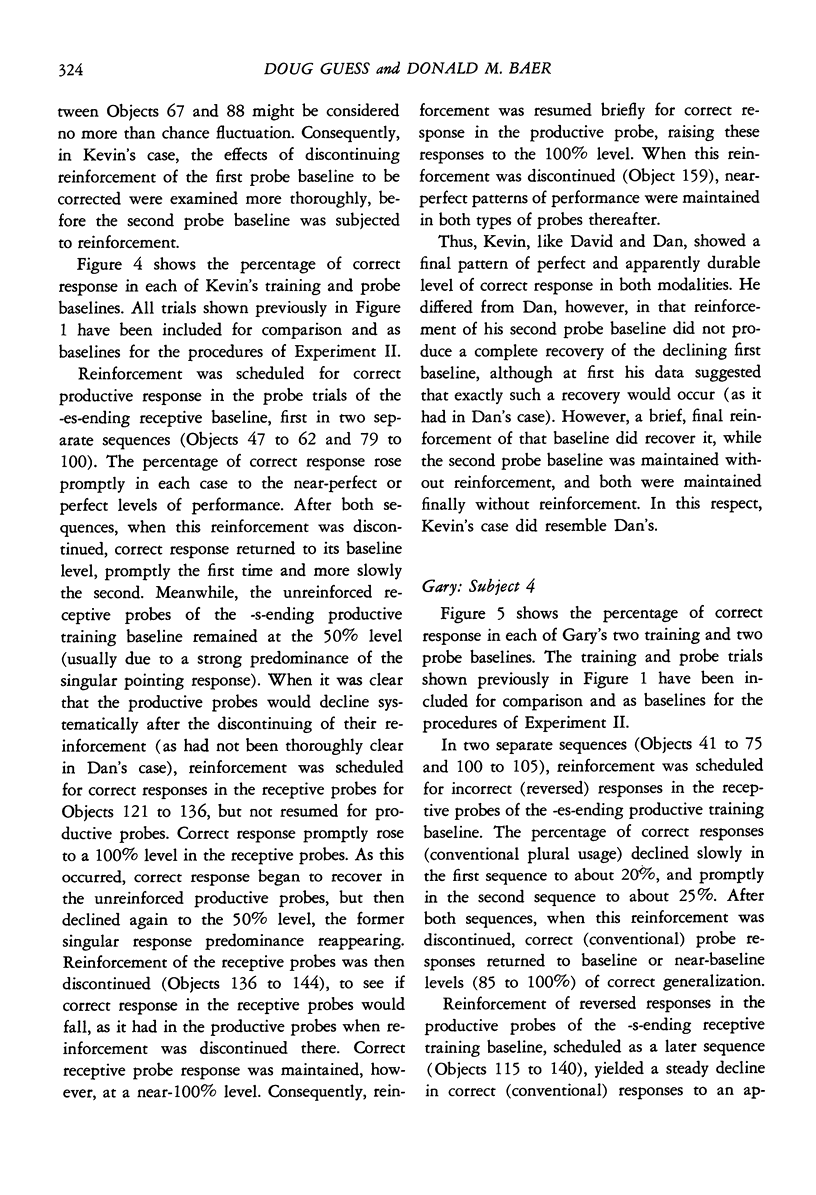
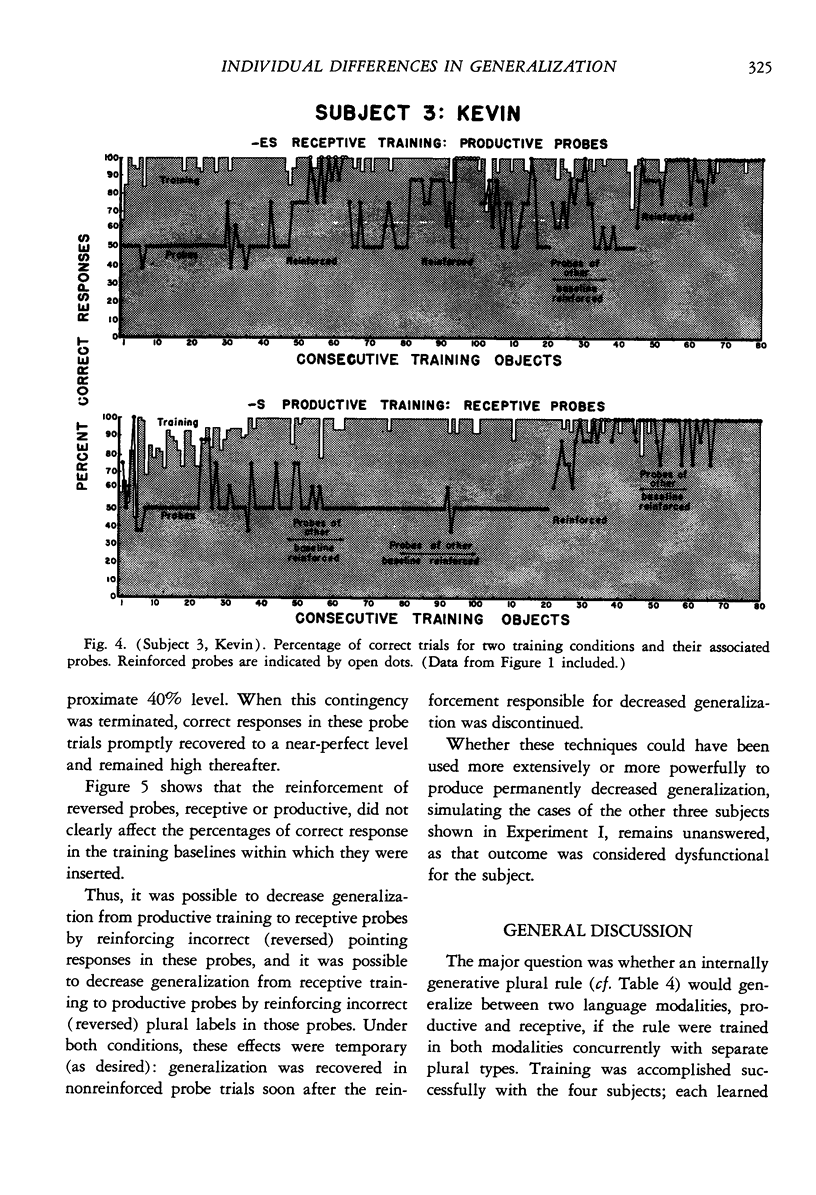
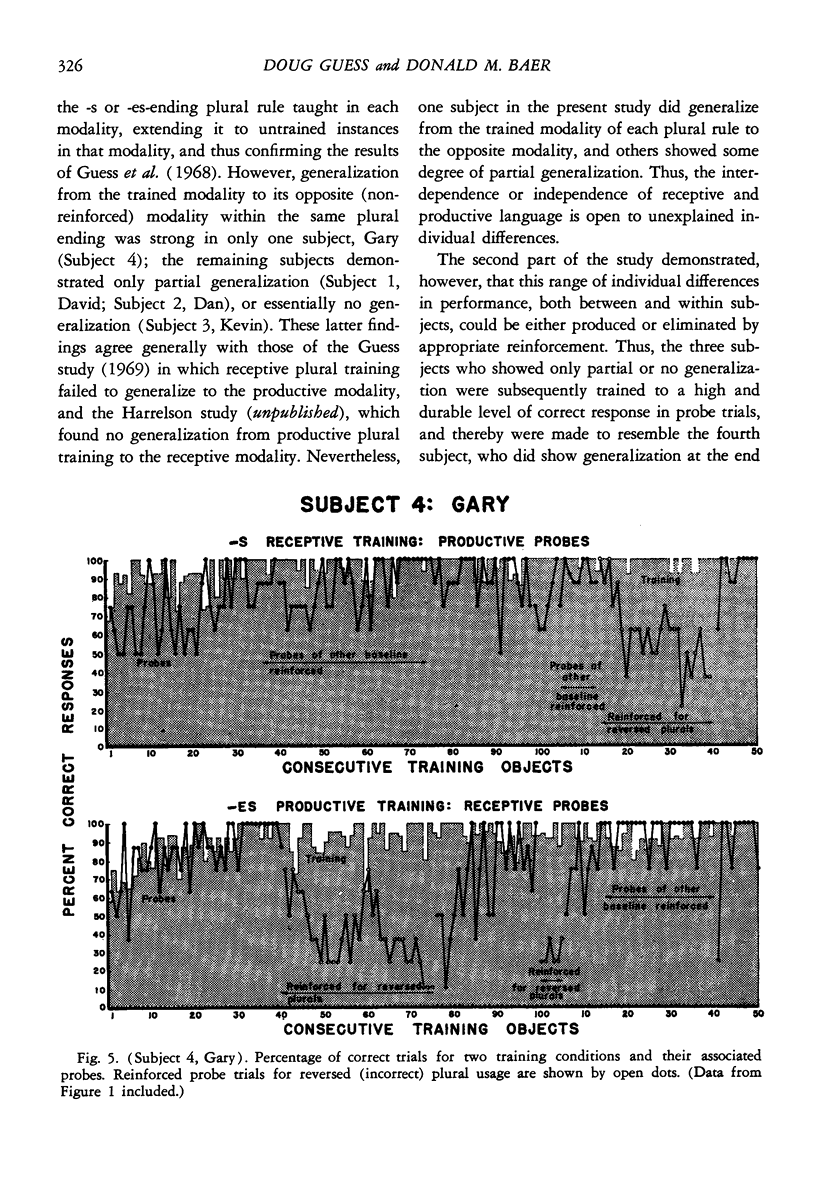
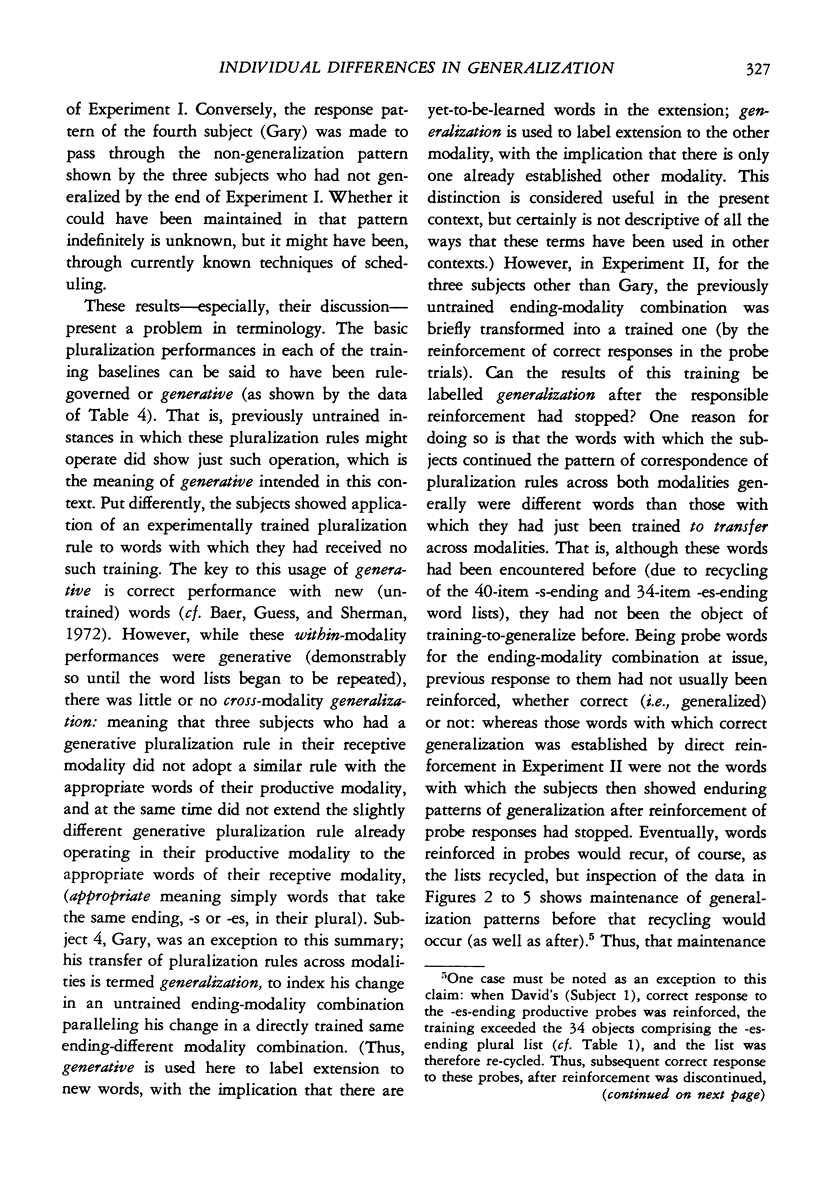
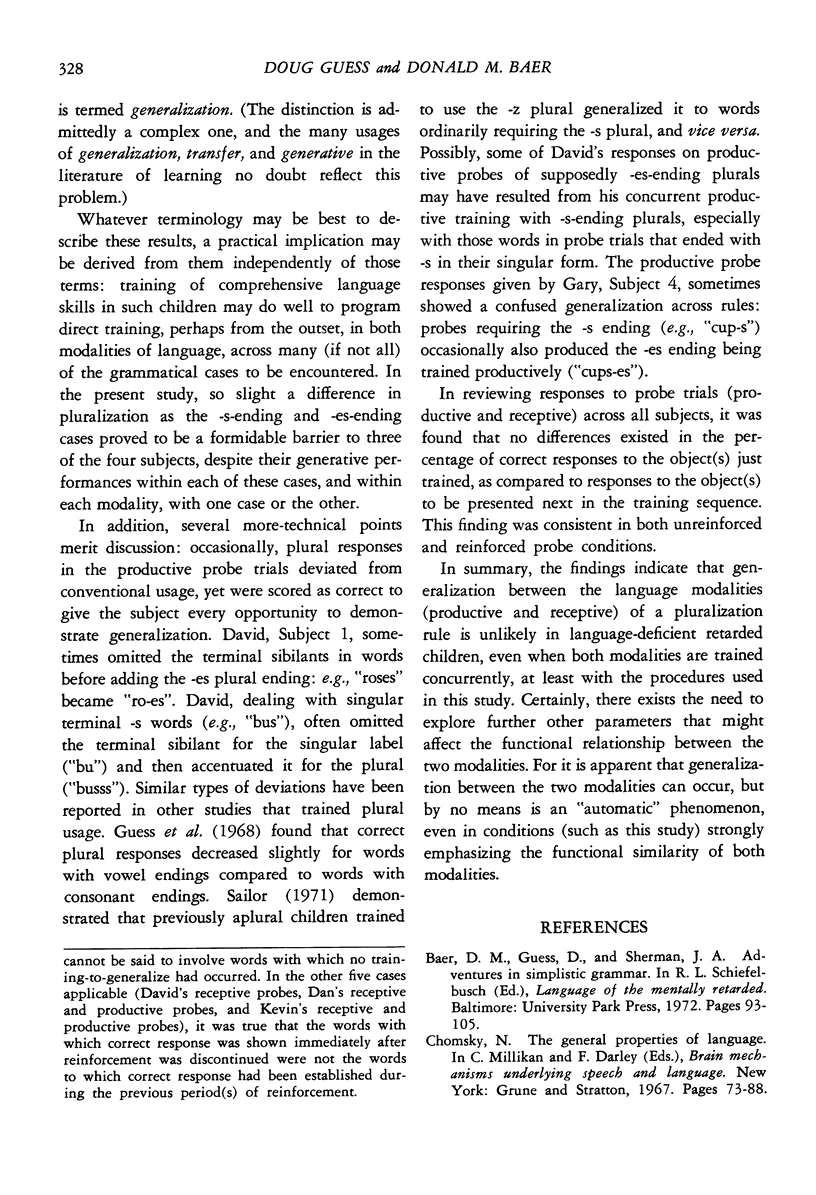
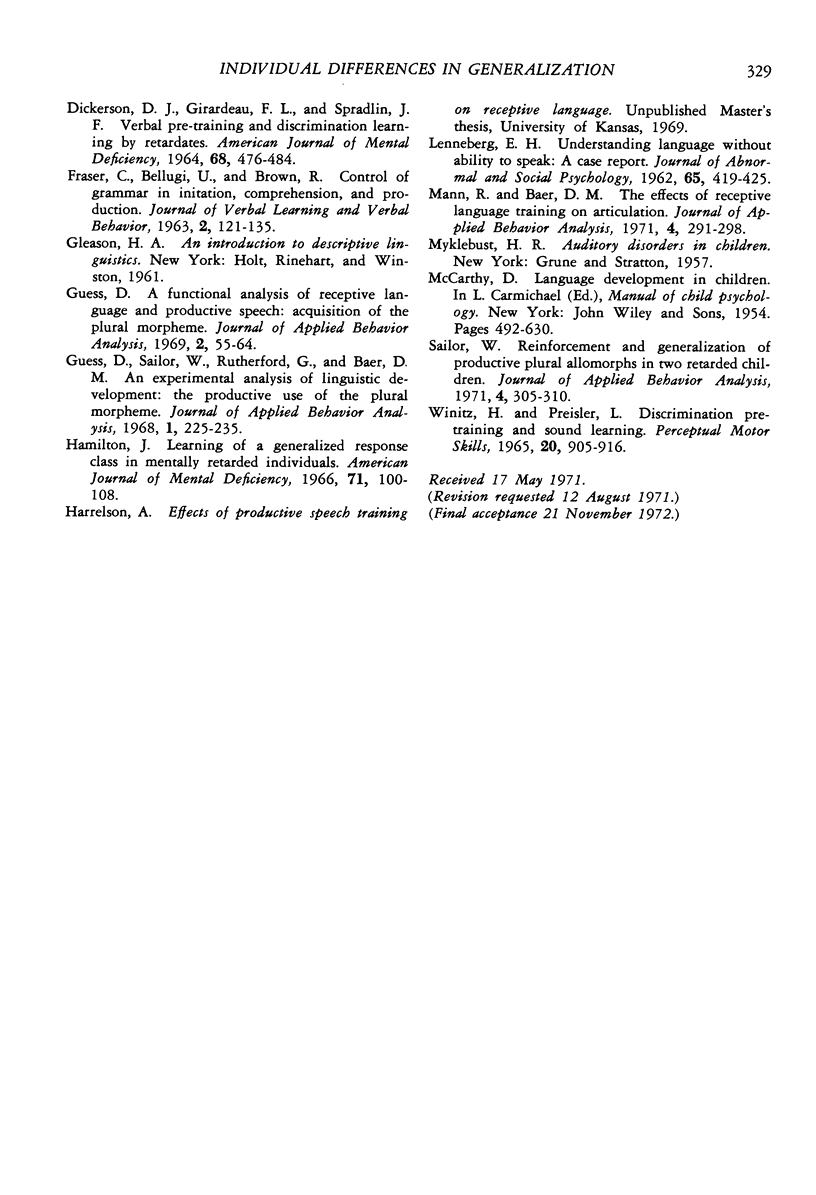
Selected References
These references are in PubMed. This may not be the complete list of references from this article.
- Guess D. A functional analysis of receptive language and productive speech: acquisition of the plural morpheme. J Appl Behav Anal. 1969 Spring;2(1):55–64. doi: 10.1901/jaba.1969.2-55. [DOI] [PMC free article] [PubMed] [Google Scholar]
- Hamilton J. Learning of a generalized response class in mentally retarded individuals. Am J Ment Defic. 1966 Jul;71(1):100–108. [PubMed] [Google Scholar]
- LENNEBERG E. H. Understanding language without ability to speak: a case report. J Abnorm Soc Psychol. 1962 Dec;65:419–425. doi: 10.1037/h0041906. [DOI] [PubMed] [Google Scholar]
- Mann R. A., Baer D. M. The effects of receptive language training on articulation. J Appl Behav Anal. 1971 Winter;4(4):291–298. doi: 10.1901/jaba.1971.4-291. [DOI] [PMC free article] [PubMed] [Google Scholar]
- Peterson R. F. Some experiments on the organization of a class of imitative behaviors. J Appl Behav Anal. 1968 Fall;1(3):225–235. doi: 10.1901/jaba.1968.1-225. [DOI] [PMC free article] [PubMed] [Google Scholar]
- Sailor W. Reinforcement and generalization of productive plural allomorphs in two retarded children. J Appl Behav Anal. 1971 Winter;4(4):305–310. doi: 10.1901/jaba.1971.4-305. [DOI] [PMC free article] [PubMed] [Google Scholar]
- WINITZ H., PREISLER L. DISCRIMINATION PRETRAINING AND SOUND LEARNING. Percept Mot Skills. 1965 Jun;20:905–916. doi: 10.2466/pms.1965.20.3.905. [DOI] [PubMed] [Google Scholar]


